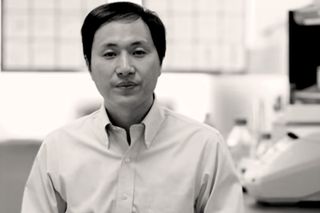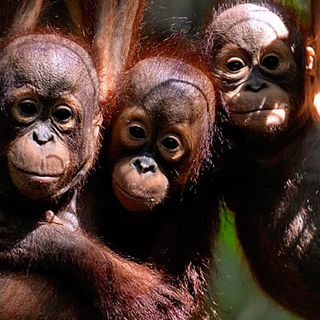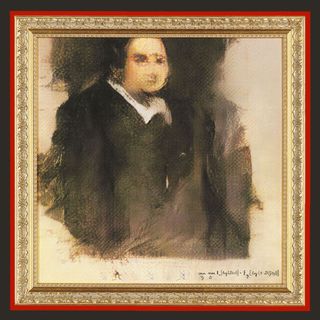
World’s First Gene‑Edited Babies Have Been Born in China, Researcher Claims
The designer baby dystopia begins.

A Chinese researcher is claiming two twin girls born this month are the world’s first genetically edited babies. He claims he edited their embryonic DNA to endow the children with immunity to HIV, the virus that causes AIDS.
He Jiankui, of Shenzhen, has said he edited the genome of 16 embryos for seven couples undergoing fertility treatment, 11 of which were transferred, with one edited embryo resulting in a pregnancy and birth. Specifically, he said he disabled in these embryos CCR5, a gene involved in allowing HIV to invade a cell.
The news broke via interviews with The Associated Press, ahead of a conference on gene editing currently underway in Hong Kong. The claims have been neither verified nor published in an academic journal, though scientists who have examined the materials He gave to the AP say there is not enough evidence his genomic tweaks worked as intended, nor that accidental harm had been avoided in the editing process; CRISPR-cas9, the most precise technology available for gene editing, is known for its potential for ‘off-targeting,’ that is, causing accidental changes to DNA outside of the intended edit location.
He’s claim has set off a firestorm of reactions. A representative from Southern University of Science and Technology of China in Shenzhen, where he is a faculty member and heads a lab, said the claim “seriously violated academic ethics and standards” and that the university plans to investigate, reports the AP.
Some ethical concerns center around the risks of the procedure for the children: Because CRISPR-cas9’s potential for off-targeting, in addition to the ethics of altering human DNA, many experts are condemning the experiment, calling it, for instance, “unconscionable … an experiment on human beings that is not morally or ethically defensible,” Dr. Kiran Musunuru, a University of Pennsylvania gene editing expert and editor of a genetics journal, told the AP.
Other ethical concerns revolve around questionable practices in the running of the experiment: He gave no further details of how or where the work was done, or who the parents are. He says all fathers were HIV positive, and the mothers were not; consent forms reviewed by the AP describe the gene editing project as an “AIDS vaccine development” program, giving rise to questions about whether those involved in the experiment truly understood it. Indeed, some staff at the hospitals that facilitated embryo transfer were unaware of He’s gene editing on the embryos.
Finally, others are criticizing the crudeness of the editing job. Scientists who reviewed the research materials He gave the AP have noted its incompleteness in what appears to be a random assortment of cells with DNA tweaks. He himself flagged that one twin had only one copy of the intended gene tweaked, while the other twin had both copies tweaked. (Everyone’s DNA contains two copies of each gene.) The former twin, experts say, would still be susceptible to HIV, leading some experts to question the objective of editing their DNA.
“It’s almost like not editing at all,” one highly regarded geneticist from Harvard University, George Church, told the AP, which suggests He’s “main emphasis was on testing editing rather than avoiding this disease.” Still, Church defended He’s attempt was “justifiable” in that it was aimed to stem “a major and growing public health threat.” HIV infection is on the upswing in China, which reported a 14% increase in new cases of HIV and AIDS earlier this year.
Liesl Goecker is The Swaddle's managing editor.
Related


60% of the Planet’s Wildlife Has Died Off Since 1970
